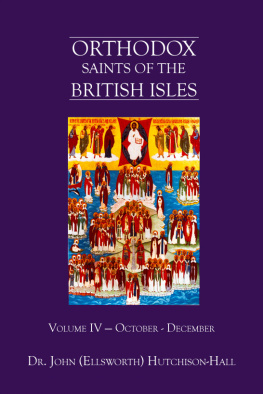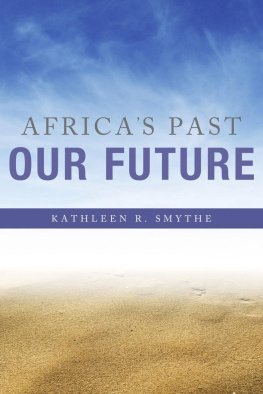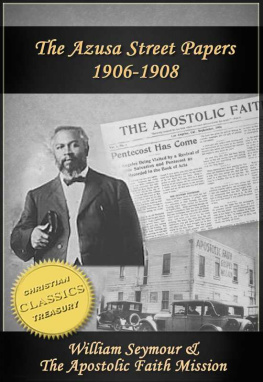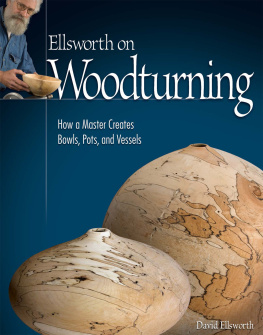FOREWORD
IN WRITING this book I have kept several objects prominently in mind. First of all, I have aimed to make a faithful collection of all essential facts pertaining to the history of San Diego, from the day of its discovery by Europeans down to the time in which we are living. To this end, public records have been examined; scores of volumes of history, biography, reminiscence, even of fiction, have been studied, newspaper files have been patiently searched; and living pioneers have been interviewed by stenographers. In this hunt for information I have constantly employed one exceedingly competent assistant and, for much of the time, two or three others. As a result, materials have been collected in excess of my ability to use them in this volume, but they will be preserved in some public place for the benefit of students and of the future historian.
In the second place, I have endeavored to save from oblivion the rich traditions which cluster about the life of Old San Diego, a place which has all but perished from the earth, yet which should ever possess an absorbing interest not only for those who dwell about the shores of San Diego Bay, but for all students of American history. Plymouth, Massachusetts, is a place of no great modern importance, yet it is one of the shrines of the American people and the traditions of its settlement and growth in the quiet years of the seventeenth century have been written again and again, and will be read with fascinated interest by all future generations. Old San Diego possesses much the same historical pre-eminence, but its claims have been neglected by nearly all writers of American history, including those who prepare text-books for our children. It is, therefore, without apology that a large portion of this work is devoted to Old Town, including some account of the Spanish and American families who were associated with its political, social and commercial life. My only regret is that an entire volume could not be given to this phase of our annals.
I am keenly aware of the fact that this book contains much which will be chiefly valuable for reference purposes. There are many things which must be collected and preserved in a local history, but which do not lend themselves to literary treatment nor belong strictly to the narrative which interests the general reader. This observation applies to accounts of organizations no one of which includes more than a small part of the community, yet each of which has its own peculiar public. It should be remembered also that the web of our history is woven of many separate threads, and that none of these is without influence in making the color and substance of the whole fabric. In the department of the work entitled, Institutions of Civic Life, the reader will find many of the most significant facts of our progress as a community.
Acknowledgments are due to many persons for assistance rendered in assembling the facts for this book. The late E. W. Morse was extremely helpful, and the last days of his life were given freely to lengthy interviews and the explanation of old documents. Father Morton patiently submitted to cross-examination on several occasions, furnishing impressions of his own period which might otherwise have been lost. Judge M.A. Luce and Daniel Cleveland have been constantly consulted and have rendered invaluable assistance, with the utmost patience and courtesy. To E.F. Parmelee, business manager of the San Diego Union, apologies are due, as well as sincere thanks, for he allowed his office to be cumbered for weeks at a time with desk and typewriter while the newspaper files were being searched in the interest of this work. Mrs. Davison, Librarian of the San Diego Public Library, the authorities of the University Library, at Berkeley, and the State Librarian at Sacramento, co-operated in securing rare volumes needed for consultation. To these, and to many other persons, who helped in various ways, and especially to living pioneers who supplied recollections of men and events (their names are mentioned in connection with their stories in the text), the authors warmest thanks are tendered.
The project of writing this work originated not with me, but with Nathan Watts, who has long felt a deep interest in our local history and who has been strongly impressed with the importance of collecting and preserving authentic records of the past, and especially the recollections of old settlers, while it was yet possible to do so. Mr. Watts has been the constant friend of the enterprise, and is entitled to a very large share of any credit that may be due for the performance.
It is also with much pleasure that I acknowledge my indebtedness to my chief assistant in the preparation of this volume, Millard F. Hudson. An indefatigable scholar and worker, the book could not have been produced at this time, nor at any time with the degree of thoroughness with which I am sure it has been done, without the assistance derived from his enthusiasm, intelligence, and devotion. Much of the narrative portion of the work stands substantially as he prepared it in his full notes of interviews and abstracts from documents and other authoritative sources. This being so, he is to be regarded as joint-author of the work.
Finally, grateful acknowledgment must be made to nearly one hundred prominent citizens whose generosity and civic pride prompted them to subscribe various sums toward a publication fund. It was realized at the beginning that the production of a volume entailing an expenditure of several thousand dollars, and wholly devoid of paid biographies and commercial write-ups, could not be hazarded on the prospects of sales within a limited field. The financial problem was solved by subscriptions for books at prices in excess of the publishers rate to the public. These prices are of various amounts voluntarily fixed by the subscribers, but sufficient in the aggregate to reduce the risk of publication to a point where it becomes feasible. Nothing in the book is influenced in the slightest degree by pecuniary considerations. No one has been included in text or illustration because he subscribed to the publication fund, nor has any one been omitted because he failed to do so. The effort has been to produce real history and real literature, and to measure men and events by no other standard.
Writing the book in the course of my profession as a literary man, it has yet been largely a labor of love, and I hope it may be regarded in the future as a service to a people who have honored me with constant evidences of their friendship, and even as a modest memorial to my citizenship among them.
WILLIAM E. SMYTHE.
San Diego, California,
January 1, 1907.
INTRODUCTION: The Historical Pre-Eminence of San Diego
THE CIVILIZATION of California, and of the whole Western Coast now belonging to the United States, began on the shores of San Diego Bay. What Plymouth is to New England and the region facing the Atlantic, San Diego is to the great empire which faces the Pacific.
This fact is not appreciated as it deserves to be by readers of history generally, nor by the people of California, nor even by the people of San Diego. Here by the Southwestern Gateway of the Republic should be one of the great shrines of historical America, where pilgrims should come by thousands to pay homage to the past, and where monuments should be erected by this generation, to be bequeathed to the keeping of generations yet to come.












